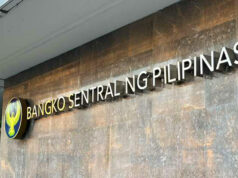Only 5 FIST corporations set up since law signed in 2021

ONLY FIVE Financial Institutions Strategic Transfer (FIST) corporations have been set up in the Philippines since a law allowing financial institutions to offload bad loans accumulated during the pandemic took effect in 2021, the Department of Finance (DoF) said.
The FIST Act, or Republic Act 11523, signed in February last year helps financial institutions clean their balance sheets by selling nonperforming assets to FIST corporations that are registered with the Securities and Exchange Commission (SEC).
The SEC in a report to the Finance department said the slow rollout of FIST corporations could be attributed to “the continuing strength of the Philippine banking system despite the pandemic.”
Two of the five FIST corporations in the country are 100% owned by Filipinos, while the others include the participation of Japanese and Swiss investors, the DoF said in a press release on Wednesday.
Both Philippine Equitable Recovery FIST-Asset Management Corp. and Philippine Recovery Co. FISTC-AMC, Inc. are 100% Filipino owned, while Argo Global Servicing Philippines (FIST-AMC), Inc. is under a Japanese corporation.
Collectius FISTC-AMC Private Ltd. Corp. is wholly owned by a Switzerland-based firm, while Resurgent Capital (FISTC-AMC), Inc. includes an investment banking subsidiary of China Banking Corp. among its incorporators.
“Unlike during the Asian (financial) crisis, in general, Philippine banks remain well-capitalized and liquid. Hence, there is less pressure for banks to liquidate nonperforming loans or nonperforming assets for cash,” the SEC said.
The SEC added that proponents of special purpose vehicles during the Asian financial crisis in the late 1990s were foreign investors looking into distressed Asian debt, including the nonperforming loans and assets of Philippine banks.
But the global effects of the coronavirus disease 2019 (COVID-19) pandemic meant that foreign investors did not need to go far to invest in distressed debt.
SEC said FIST corporations may need to turn to other Philippine credit granting institutions — including financing, lending, and microfinance companies — instead of banks.
The commission plans to discuss this with the Investment House Association of the Philippines and the Philippine Finance Association.
Bad loans as of November 2021 fell by 0.43% to P481.879 billion from P483.98 billion a month earlier. Still, this was 19% higher than the P404.687 billion logged in the same month in 2020.
This brought the November bad loan ratio to 4.35%, the lowest in eight months or since the 4.21% seen in March 2021, data from the Bangko Sentral ng Pilipinas (BSP) showed.
The central bank had earlier said the ratio could reach 5-6% by end-2021 before peaking at 8.2% by 2022. Philippine banks are expected to offload at least P152 billion in nonperforming assets through the FIST law, the BSP said. — Jenina P. Ibañez



